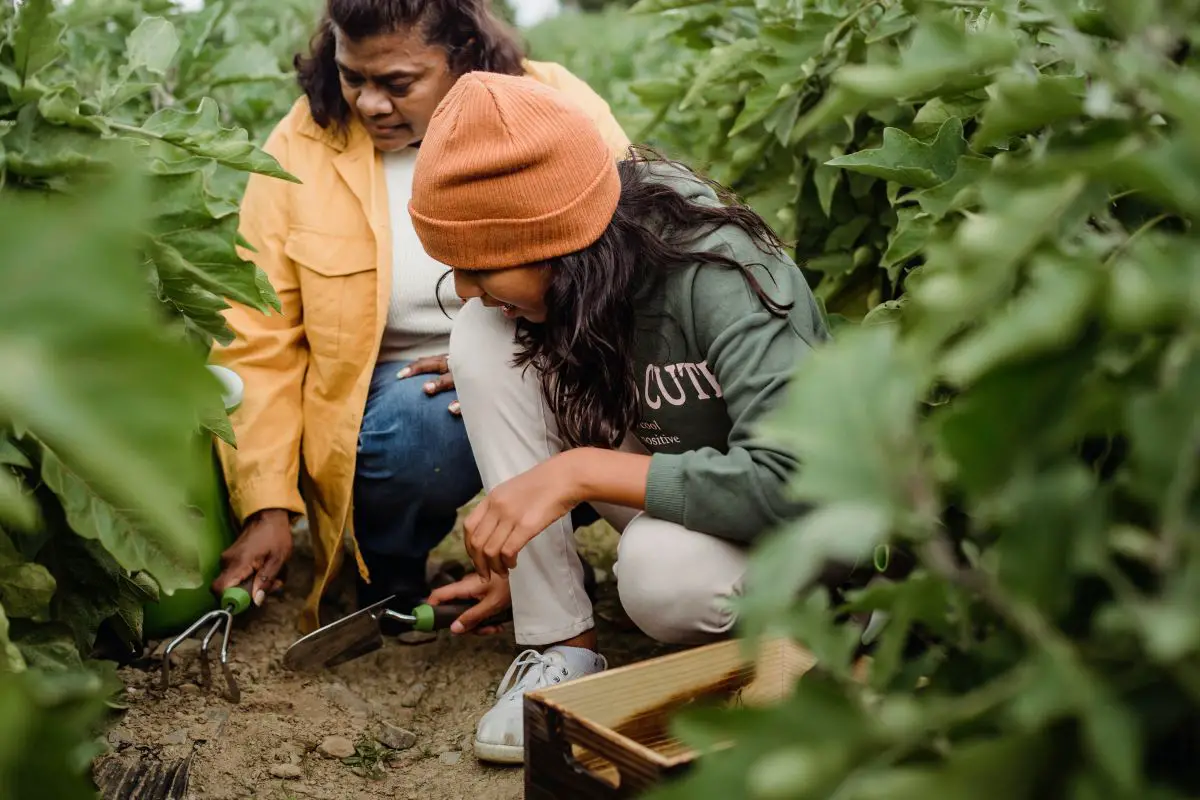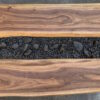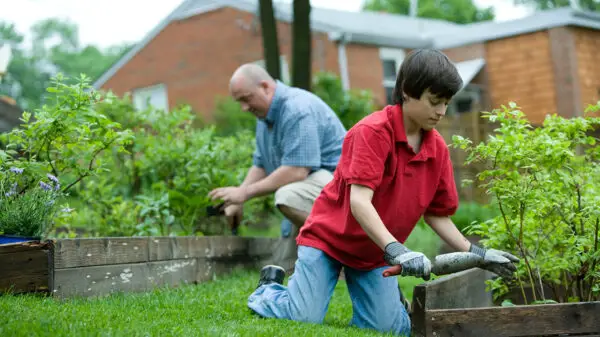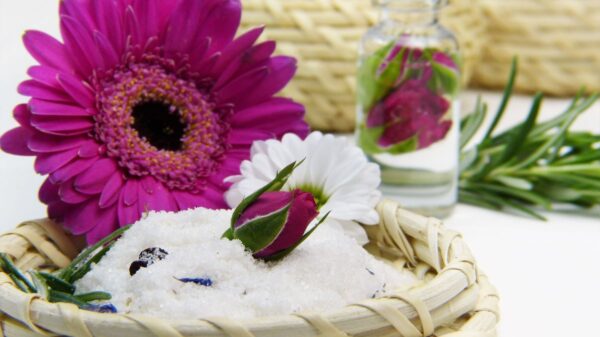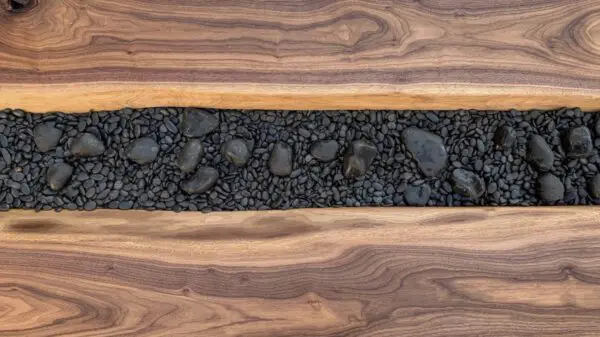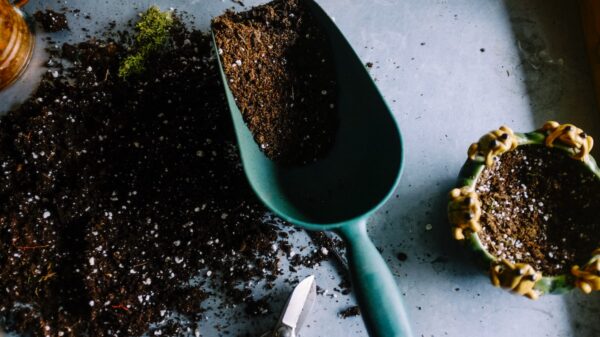Getting Rid of Grass in the Garden Without Killing Plants
Cultivating a thriving garden is a passionate endeavor, yet the relentless encroachment of unwanted grass can prove to be a persistent and vexing challenge. This dilemma arises from the need to eradicate grass without compromising the well-being of your flourishing garden’s diverse flora. In this comprehensive guide, we will delve into a myriad of techniques and strategies to assist you in effectively ridding your garden of grass while safeguarding the health and vitality of your cherished plants.
Effective Strategies to Eliminate Grass Without Harming Your Garden’s Plants
Unwanted grass in your garden can be a relentless competitor, vying with your beloved plants for essential nutrients, light, and water, which can hinder their growth. Fortunately, there exist numerous effective methods to tackle this issue without jeopardizing the health of your garden’s flora.
Natural Mulching: A Protective Shield
Natural mulching stands out as a powerful technique to thwart the relentless advance of grass into your garden. This approach involves the use of organic materials such as straw, wood chips, or dried leaves to create a robust protective layer surrounding your plants. This natural shield acts as a barrier, effectively impeding the growth of grass while simultaneously aiding in the retention of soil moisture. This ensures that your plants have access to the water they require to thrive.

Hand Pulling: A Hands-On Approach
For smaller patches of invasive grass, nothing surpasses the tried-and-true method of hand pulling. Armed with a suitable weeding tool, carefully extract the grass, taking care not to disturb the delicate roots of your garden’s plants. Meticulous attention to detail is imperative, as even the smallest remnant of grass left behind can regenerate, posing an ongoing threat to your garden’s health.
Corn Gluten Meal: Organic Weed Suppression
Corn gluten meal proves to be a remarkable organic herbicide that specifically targets the germination of weed seeds. This natural product serves as a preventive measure when applied early in the growing season, effectively inhibiting the sprouting of grass without causing any harm to your established garden plants. This environmentally-friendly solution serves as an effective method to curb weed growth, preserving the pristine condition of your garden.
Vinegar Solution: A Natural Grass Terminator
A concoction of vinegar and water emerges as a potent weapon against the intrusion of grass. By judiciously applying this solution to unwanted grass, you can effectively eradicate it. However, it is crucial to exercise caution to ensure that the vinegar solution does not come into contact with your plants, as it can harm them. A targeted approach ensures the removal of unwanted grass while safeguarding the health of your garden.
Landscape Fabric: Constructing a Protective Barrier
Landscape fabric represents a versatile and strategic barrier that can be positioned around your plants, preventing the establishment of grass. This innovative fabric permits the passage of water and nutrients into the soil, enriching your plants while simultaneously keeping grass at bay. The relatively simple installation process and long-lasting effectiveness make landscape fabric a valuable choice for maintaining the health of your garden.
FAQs
Q: Can I use chemical herbicides to kill grass without harming my plants?
A: It’s crucial to exercise caution when considering the use of chemical herbicides in your garden. While these products can effectively eliminate grass, they also pose a risk to your plants. Chemical herbicides may harm the desirable flora in your garden. As a safer alternative, opt for natural or organic methods that specifically target grass and spare your plants from potential harm.

Q: How frequently should I renew the mulch layer for optimal results?
A: Maintaining a healthy mulch layer is vital for an effective grass barrier. To ensure the best results, it is recommended to refresh the mulch layer annually. Over time, mulch can break down and lose its effectiveness in deterring grass. By renewing it each year, you’ll maintain a strong protective barrier for your garden plants.
Q: Does hand pulling grass pose a risk to the health of my plants?
A: Hand pulling grass, when done with care, should not jeopardize the well-being of your plants. The key is to be diligent and gentle in your approach. Make sure to uproot the grass thoroughly while minimizing any disturbance to your plants’ roots. By taking these precautions, you can effectively eliminate unwanted grass without harming your cherished garden residents.
Q: What is the best time to apply corn gluten meal in the garden?
A: Timing is crucial when using corn gluten meal to prevent grass from sprouting. To make the most of this natural herbicide, apply it early in the spring before weed seeds have the opportunity to germinate. This proactive approach inhibits the growth of grass while allowing your established plants to thrive without interference.
Q: Are there any specific types of grass that vinegar solution works best on?
A: Vinegar solution is generally effective against most types of grass; however, it’s essential to use it with caution. While it can be a potent grass terminator, it may also harm your plants if it comes into contact with them. To safeguard your garden’s well-being, apply vinegar solution with precision, ensuring it solely targets the grassy intruders.
Q: How deep should I bury the landscape fabric for optimal grass control?
A: To achieve optimal results with landscape fabric, bury it at a depth of approximately 3 inches. This depth provides an effective barrier against grass growth while still allowing water and nutrients to reach your plants’ roots. Proper installation ensures that your garden remains well-protected from unwanted grass, fostering a flourishing and harmonious outdoor space.
Q: What’s the best time of day to hand pull grass in my garden?
A: The ideal time for hand pulling grass in your garden is during the morning or late afternoon. At these times, the soil is slightly moist, making it easier to uproot the grass without causing harm to your plants. Additionally, cooler temperatures during these parts of the day are more comfortable for the gardener, ensuring a more effective and pleasant weeding experience.
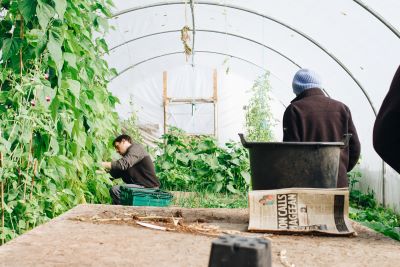
Q: Can I use newspaper as an alternative to landscape fabric for weed control?
A: Yes, newspaper can serve as a cost-effective and environmentally friendly alternative to landscape fabric for weed control. To use newspaper effectively, lay several layers of newspaper around your plants and cover it with a layer of mulch. The newspaper acts as a natural weed barrier by blocking sunlight and hindering weed growth. However, keep in mind that newspaper may break down faster than landscape fabric and may need periodic replacement, typically during mulch renewal.
Q: Are there any natural predators or insects that can help control grass in my garden?
A: While there aren’t specific predators or insects that exclusively target grass, there are beneficial garden inhabitants that indirectly assist in controlling weed populations, including grass. Ground beetles and ladybugs are examples of such insects. Ground beetles are voracious predators of many garden pests, including weed seeds and small insects. Ladybugs, on the other hand, feed on aphids, which are known to infest garden plants. By encouraging biodiversity in your garden and providing a hospitable environment for these beneficial insects, you can effectively reduce weed and grass infestations. These insects contribute to a healthier garden ecosystem while indirectly aiding in grass control.
Q: Can I use the grass I’ve removed from my garden for composting?
A: Yes, the grass you’ve removed from your garden can be utilized for composting. However, ensure that the grass is free from seeds, particularly if it’s from invasive or weedy grasses. Composting can help you recycle organic matter and enrich your garden soil. To effectively compost grass, mix it with other organic materials, such as leaves and kitchen scraps, to create nutrient-rich compost for your plants.
Q: Are there any eco-friendly alternatives to chemical herbicides for tackling grass in my garden?
A: Yes, there are several eco-friendly alternatives to chemical herbicides. As mentioned earlier, natural mulching, hand pulling, and organic solutions like corn gluten meal are effective choices. Additionally, you can also consider using a flame weeder, which uses heat to kill weeds, or a vinegar-based herbicide. These methods are environmentally friendly and help you maintain a healthy garden without the use of harmful chemicals.
In Conclusion
Creating a flourishing garden is a testament to your unwavering dedication and the diligent application of effective maintenance strategies. By employing these proven methods, you can effectively banish the unwelcome presence of grass from your garden while preserving the health and vitality of your beloved plants. Keep in mind that a thriving garden is a harmonious blend of two essential elements: the elimination of the unwanted and the nurturing of the desired.
By putting these strategies into action, you’ll have the privilege of observing your garden burst into a vibrant, green oasis, liberated from the encumbrance of invasive grass. In your hands lies the power to create an environment where your cherished plants can not only survive but truly thrive, showcasing the beauty and resilience of nature in your own outdoor sanctuary.


